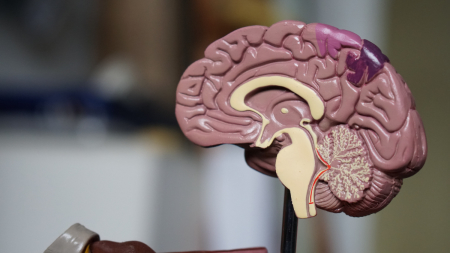George Gilder: 'One human brain is as complex as the entire global internet'

What will the next technological revolution be like? What role will learning play in our future? How much potential lies in the human mind?
I'm hard-pressed to name someone who's contributed more to these kinds of discussions than George Gilder, one of the greatest minds of our age. George is an author, economist, co-founder of the Discovery Institute, and is known as America's #1 tech futurist. His work has been hugely influential going back decades, and when I recently sat down with him on the podcast Meeting of Minds, it was clear that he hasn't slowed down a bit.
Much like George's work, our conversation spanned across a wide variety of topics. Here are just a few highlights from our discussion, lightly edited for clarity and length:
AI is wonderful, but not “fearfully or wonderfully made” like human beings are
George: "The key insight I really discovered in my book Gaming AI. I started studying connectomes. I'd been studying the connectome of the internet for years - all the connections of the internet, and how they proliferate, and how they become more and more complex. So connectome theory really made sense to me when I encountered it in a book from MIT about the connectome of the human brain. This set of professors, beginning with Cambridge neuroscientist Tony Stretton, helped work out all the connections in the brain of a nematode worm, which is the smallest sort of mental unit that they could find. Then they blow that up and figure out what the connectome of the human mind is, and it takes a zettabyte of data, 10 to the 21st power, a number beyond imagination, to map the connections on the human brain. Tony Stretton told me the more he learned the entire connectome of the nematode worm, he knew less about it than he did when he started."
Jerry: "And even after mapping a worm's brain, we still don't understand it!"
George: "Yeah! When I read about the human brain being a zettabyte, I was really excited, it was an epiphany: Mapping the whole global internet takes about a zettabyte. Each individual human brain is about as complexly-connected as the global internet."
Jerry: "That blew me away in Gaming AI, that's just astonishing."
George: "It is an astonishing fact."
Jerry: "One human brain has about as much synaptic connectivity as the entire global Internet."
Wealth is knowledge, growth is learning
George: "I believe new technology is emerging. It's going to have many setbacks because there have been many conceptual errors made by various entrepreneurs and the cryptocurrency space, but this is how entrepreneurship works. It sorts out the truth from the dross and thus builds new systems of the world based on this process of learning. The essence of my information theory of capitalism, my information theory of economics, is that wealth is knowledge. We have essentially the same material resources that were available to the neanderthal in his cave, as Thomas Sowell wrote years ago, as are available to us. The difference between our age and the Stone Age is entirely the accumulation of knowledge. Wealth is essentially knowledge, but if wealth is knowledge, what's economic growth?"
Jerry: "Learning!"
George: "Learning, that's right. Economic growth is learning, a specific kind of learning. Learning systems, learning curves, are absolutely the dominant phenomenon in business and capitalism. Every company operates on a learning curve: With every doubling of total units sold, costs drop between 20-30%. These learning curves are the basis of Bain & Company, the Boston Consulting Group, McKinsey & Company, all the big consulting companies traffic in learning curves. They're ubiquitous, every industry shows them, from lines of software code to trucking miles to insurance policies. It doesn't matter what, you get these learning curves. That's because that's what growth is, it's learning."
Jerry: "Let me stop you there to say thank you, because at Bowyer Research, our little family business, every day we're thinking about the learning curve. We were just a homeschooling family, and one of our children wanted to learn about economics, and I said, 'Instead of just learning theory, let's start to crunch some data together,' and that's grown into a business that's involved with managing considerable sums of money. Every day when we're trying to decide what to do, we ask, 'Are we going to learn something? We might not have a customer yet, but I think we will have a customer if we can learn something, or maybe we can learn fast enough that we can get cheap enough that we can get a customer.' So you've impacted our business and our family."
The human mind is the ultimate "sustainable" resource
George: "The human brain runs on 10 to 12 watts, the internet runs on billions of watts. Technologies succeed to the extent that they learn to serve distributed human minds, and that's why free economies prevail, maximizing the power of distributed human minds. The human brain is not consolidated in a data center next to a glacier somewhere, the human brain is distributed all across the planet."
Jerry: "This is another point you make: We don't need to be next to a glacier somewhere."
George. "With these data centers, the chief challenge is to cool them. They need all vast fans and cooling technologies and they're usually created next to waterfalls, or glaciers."
Jerry: "Because where there's that much energy consumption, there's that much heat. The movie The Matrix had it completely backwards, the humans were the batteries and the AI was the mind, and it's absolutely the opposite. We're incredibly efficient in terms of power consumption and much more intelligent than AI."
Click here to listen to our full conversation.
Jerry Bowyer is financial economist, president of Bowyer Research, and author of “The Maker Versus the Takers: What Jesus Really Said About Social Justice and Economics.”





















